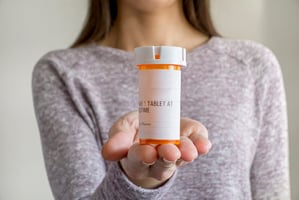Antidepressant About as Effective as Estrogen for Menopausal Symptoms, Study Finds
 |
"It is nice to see this head-to-head study comparing estradiol and venlafaxine in the treatment of menopausal hot flashes," Claudia Reardon, M.D., an assistant professor of psychiatry at the University of Wisconsin and an expert on women's issues, told Psychiatric News. "While venlafaxine may not be quite as effective as estradiol in the treatment of these symptoms, it does appear to work notably better than placebo. Our women patients often talk to us as their mental health providers about their bothersome menopausal symptoms, and this study helps us to be able to discuss the likely relative efficacy of their options with them."
"The results of this carefully conducted study provide women and their physicians with critical data to guide treatment for vasomotor symptoms (hot flashes and night sweats), which affect the lives of the majority of midlife women," Katherine Wisner, M.D., a professor of psychiatry and obstetrics and gynecology at Northwestern University, told Psychiatric News.
"Caveats are that this study is not a direct comparison between estradiol and venlafaxine (both were compared with placebo) and that medroxyprogesterone was not given during the study as it would be with clinical use of estrogen (it was given only after unblinding). [But] overall, the study adds valuable information about an alternative to estrogen for the treatment of bothersome menopausal vasomotor symptoms," commented Laura Miller, M.D., medical director of women's mental health at the Edward Hines Jr. VA Hospital in Illinois.
Information about menopause and depression can be found in the Psychiatric News article, "Close Depression Monitoring Urged During Menopause, Postmenopause." Additional information about menopause and mental health can be found in American Psychiatric Publishing's "Menopause: A Mental Health Practitioner's Guide."
(Image: baki/Shutterstock.com)





